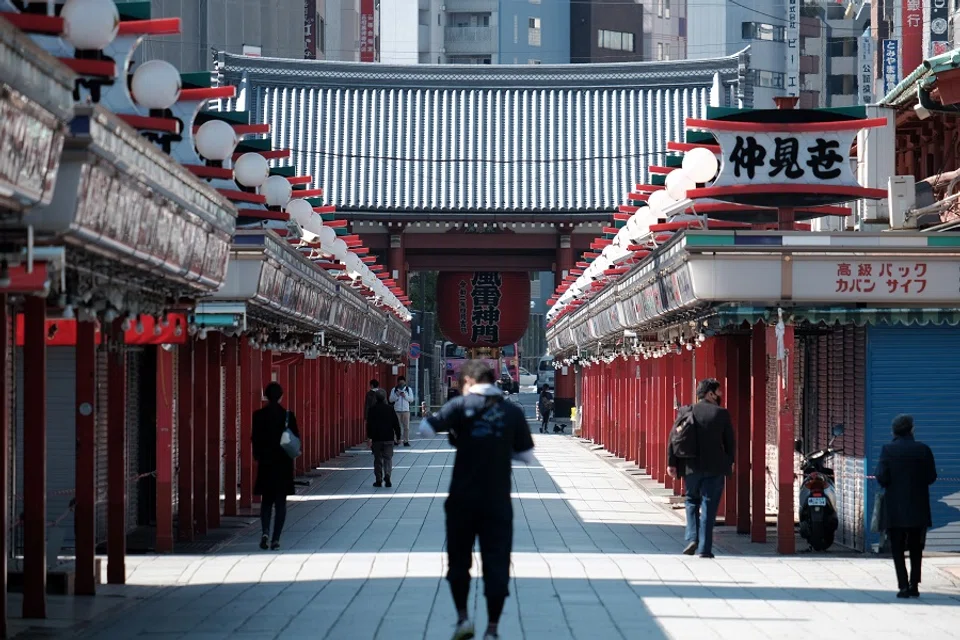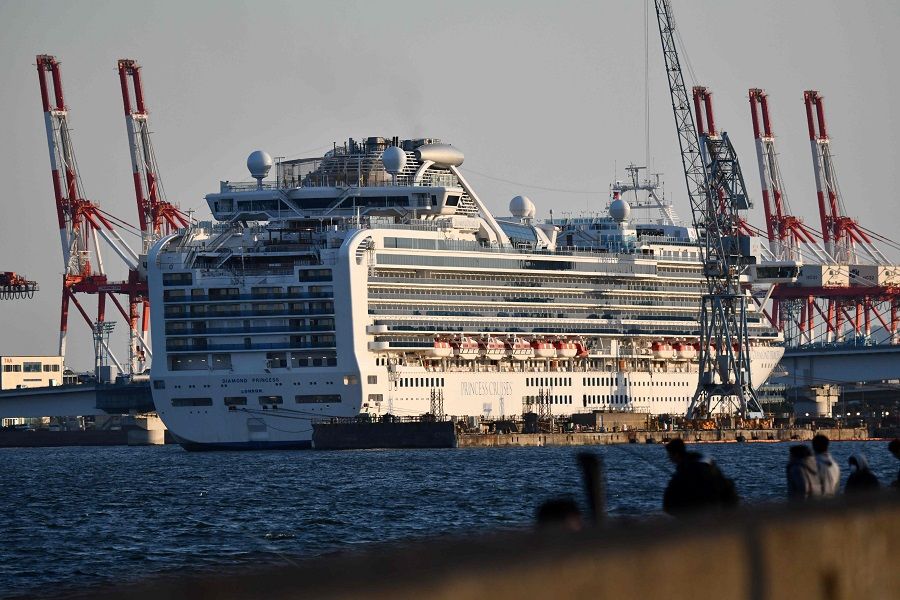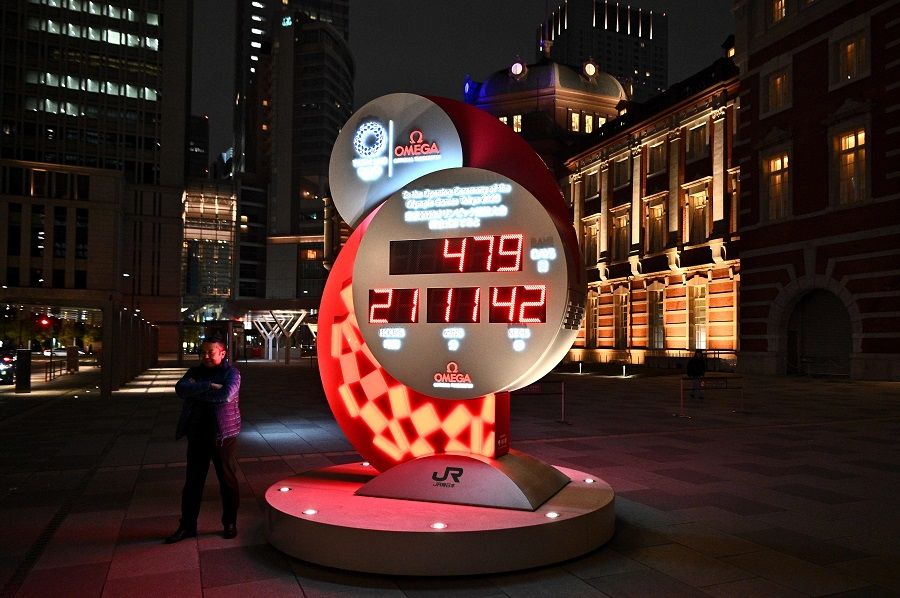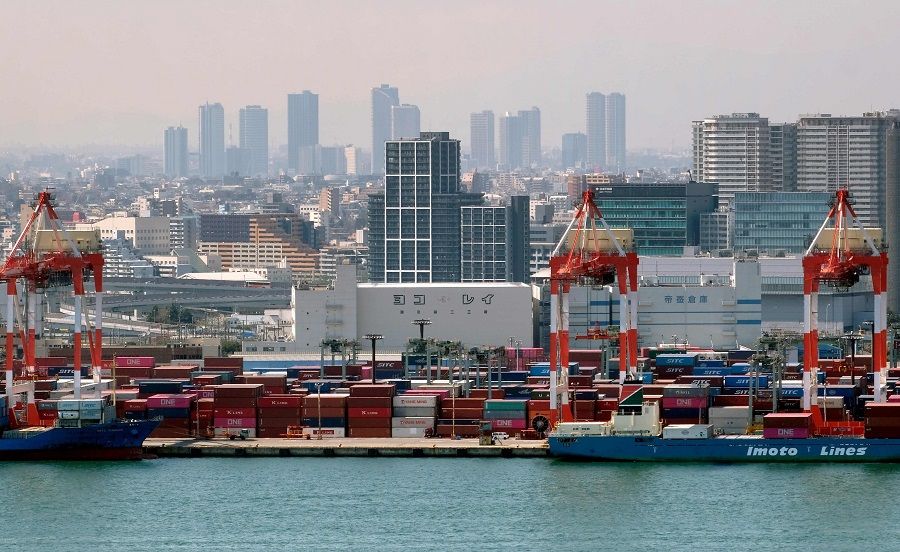Warming up of China-Japan ties hijacked by the pandemic

What was to have been the sign of warming Beijing-Tokyo ties - a state visit by Chinese President Xi Jinping to Japan in April 2020 - has been scuttled due to the coronavirus pandemic. With its postponement, the two countries' plans for getting their relations back on a stable footing have been derailed. Both sides had hoped not to reschedule the visit, which would have the first Chinese state visit to Japan since 2008 and the first made by Xi. Official announcements of the postponement were only made on 5 March - almost two months after the coronavirus outbreak started in January. The key question is: How will this postponement affect Beijing-Tokyo ties under the shadow of the pandemic?
As it is, China's ties with Japan have been affected as the epidemic that started in Wuhan spread to the world. China's diplomatic relations with Japan and other countries are witnessing a downturn, as governments rethink their ties with Beijing. Among which, the most affected is Beijing's relations with Washington, which had already hit a low point during the trade war before the pandemic.
From warming up to cooling down
Outside of China, Japan was one of the first few countries to report a Covid-19 case on 15 January. Thereafter, attention turned to the Diamond Princess cruise ship docked at Yokohama port. The ship was quarantined after a passenger who disembarked in Hong Kong was found to have caught the virus. In the early days of the outbreak, the cruise ship was the largest cluster outside China. The number of confirmed cases currently stands at 712.
Japan's approach to China following the outbreak appears to have been more the exception rather than the rule.

Despite how seriously it was affected by the coronavirus, Japan's approach to China following the outbreak appears to have been more the exception rather than the rule. Unlike countries such as the US, Australia, Singapore and others that ended up imposing a blanket ban on all Chinese visitors, Japan continued keeping its travel restrictions to just those from Hubei and Zhejiang. It was also one of the first countries to deliver masks, goggles, protective suits and other supplies to Wuhan. In addition, members of Japan's ruling party, the LDP, contributed a total of 2 million yen (about S$26,487) to China for its fight against Covid-19. Yet this "all good" picture only shows half the truth.
Economic, political and territorial hurdles
On the economic front, the coronavirus is exacerbating cracks in the China-Japan relationship. China is Japan's largest trading partner, accounting for one-fifth of the latter's trade, while Japan is China's fourth-largest trading partner.
In February, Chinese imports to Japan witnessed a dramatic fall, plummeting by 47.1% year on year - causing many Japanese manufacturers to shut down due to a shortage of Chinese parts. On the other hand, Japan's exports to China declined by only 0.4% and this was due mainly to a decrease in the shipment of automobiles, semiconductors and other electronic components. (N.B: This figure rose to a decline of 8.7% year-on-year in March.) This asymmetrical fall in the export-import pattern has disrupted the supply chain between China and Japan, and resulted in a trade surplus on Japan's side.

Tourism has also been greatly hit by the outbreak. To an already battered Japanese economy that has had to deal with the postponement of the Olympics, these numbers signal a difficult recovery path ahead. Japanese Prime Minister Shinzo Abe has called the coronavirus the "greatest crisis" that the global economy has faced since World War II.
Japan had largely stayed out of the blame game. That is, until in recent remarks to Japanese lawmakers, Japan's Deputy Prime Minister Taro Aso criticised the World Health Organisation (WHO)'s alleged bias towards China...
Given the disruptions, Japan is rethinking its options. In a bid to decrease its reliance on China, it has announced that it would set aside 220 billion yen for companies, especially those in high value-added manufacturing, to bring their production bases back to Japan, and another 23.5 billion yen to shift their production lines to other countries. This decisive move by Japan runs in contrast to the Xi-Abe intention to stabilise and improve bilateral relations.
On the political front, unlike its ally the US who has blamed China for its handling of the virus outbreak and received backlash for calling the coronavirus "Chinese virus", Japan had largely stayed out of the blame game. That is, until recently when in remarks to Japanese lawmakers, Japan's Deputy Prime Minister Taro Aso criticised the World Health Organisation (WHO)'s alleged bias towards China by saying that the WHO should be called the CHO (Chinese Health Organisation). Such remarks made by a member of the government reflects the fact that all is not well in relations between China and Japan.

What further adds to the fissures is that the viral outbreak failed to cease the tensions in the East China Sea. On 30 March, a Chinese fishing boat collided with Japan's Maritime Self-Defense Force's (JMSDF)'s Hatakaze-class guided-missile destroyer JS Shimakaze in the East China Sea.
As the fundamental issues underlying Japan-China long term relations become apparent, the fissures between them are beginning to surface and have continued to widen.
What is noteworthy is that despite the collision, the Chinese side maintained restraint as opposed to its reactions in the past. In 2010, over a Chinese fishing trawler colliding with Japanese patrol boats and the subsequent detention of the captain, the Chinese side raised the issue several times to their Japanese counterparts. In 2012 during the Japanese government's nationalisation of the Diaoyu/Senkaku islands by purchasing three uninhabited islands, China responded by unilaterally establishing an Air Defence Identification Zone (ADIZ)* in the Diaoyu/Senkaku islands. This latest collision incident confirms that the East China Sea looms large in China-Japan's strategic interests, and is so significant that even an event as calamitous as the Covid-19 pandemic will not put a pause to tensions there.
To say that China's relations with Japan have not been impacted by the Covid-19 crisis would be wrong, though the initial signs did signal some warming up of relations between the two. As the fundamental issues underlying Japan-China long term relations become apparent, the fissures between them are beginning to surface and have continued to widen. Hence, the Xi-Abe intention of putting bilateral relations on a stable track through a state visit has been hijacked by the coronavirus. A return to the old normal seems to be the long-term plan and the least that both sides can hope for, but it is uncertain if this will be in the best interest of either side.
Note:
* An Aeronautical Information Services annex to the Convention on International Civil Aviation states that an Air Defence Identification Zone (ADIZ) is a special designated airspace of defined dimensions within which aircraft are required to comply with special identification and/or reporting procedures additional to those related to the provision of air traffic services.
Related: In sickness and in health: Honeymoon period for China-Japan relations? | Widening perception gap between Japan and China since Covid-19 outbreak | [Photo story] We share the same sky and moon: China touched by Japan's friendship | Japanese academic: Battling Covid-19 is not a global match of going for gold
